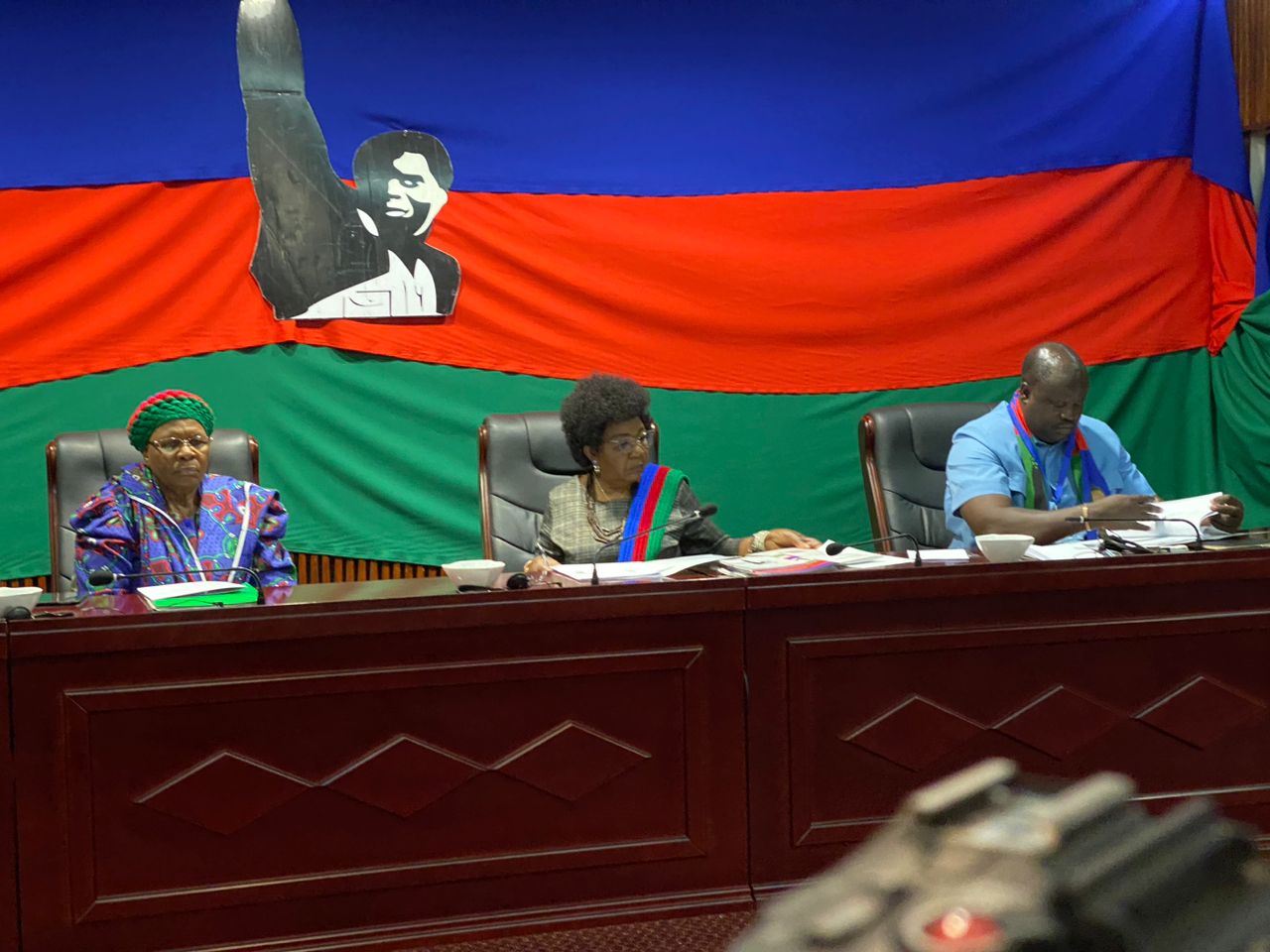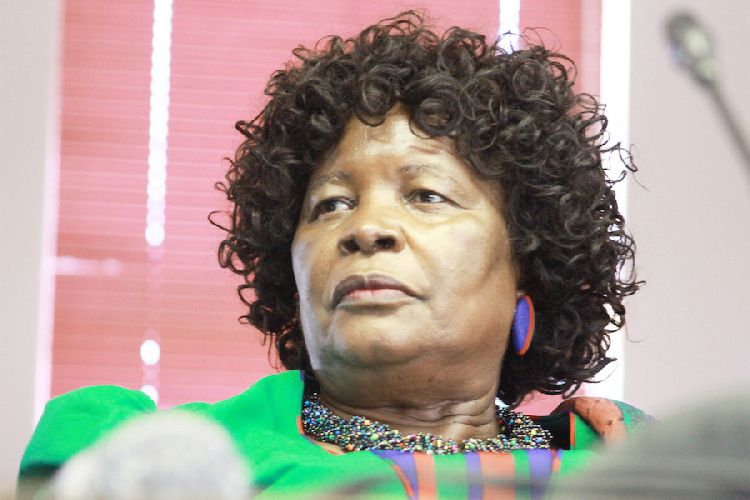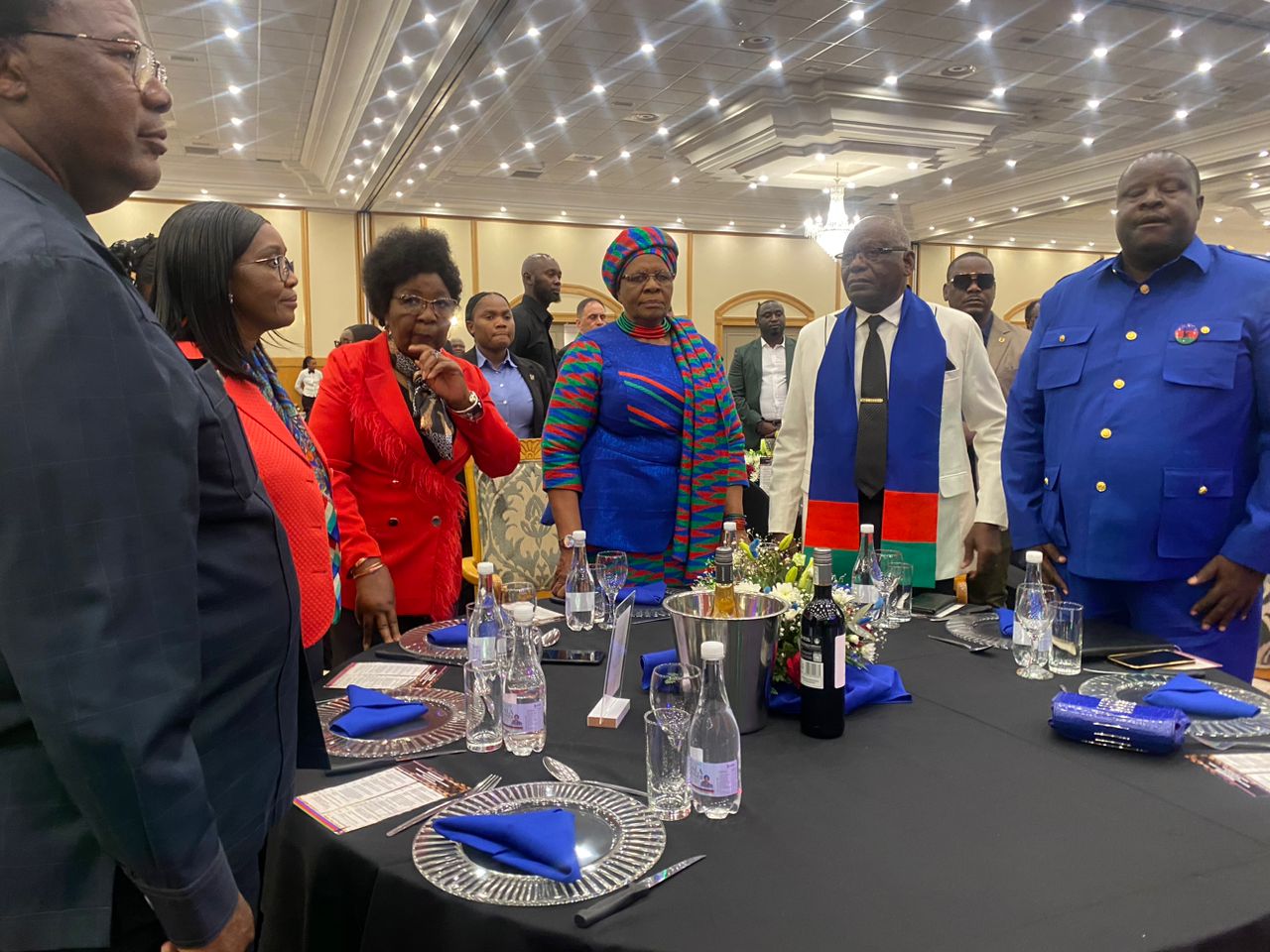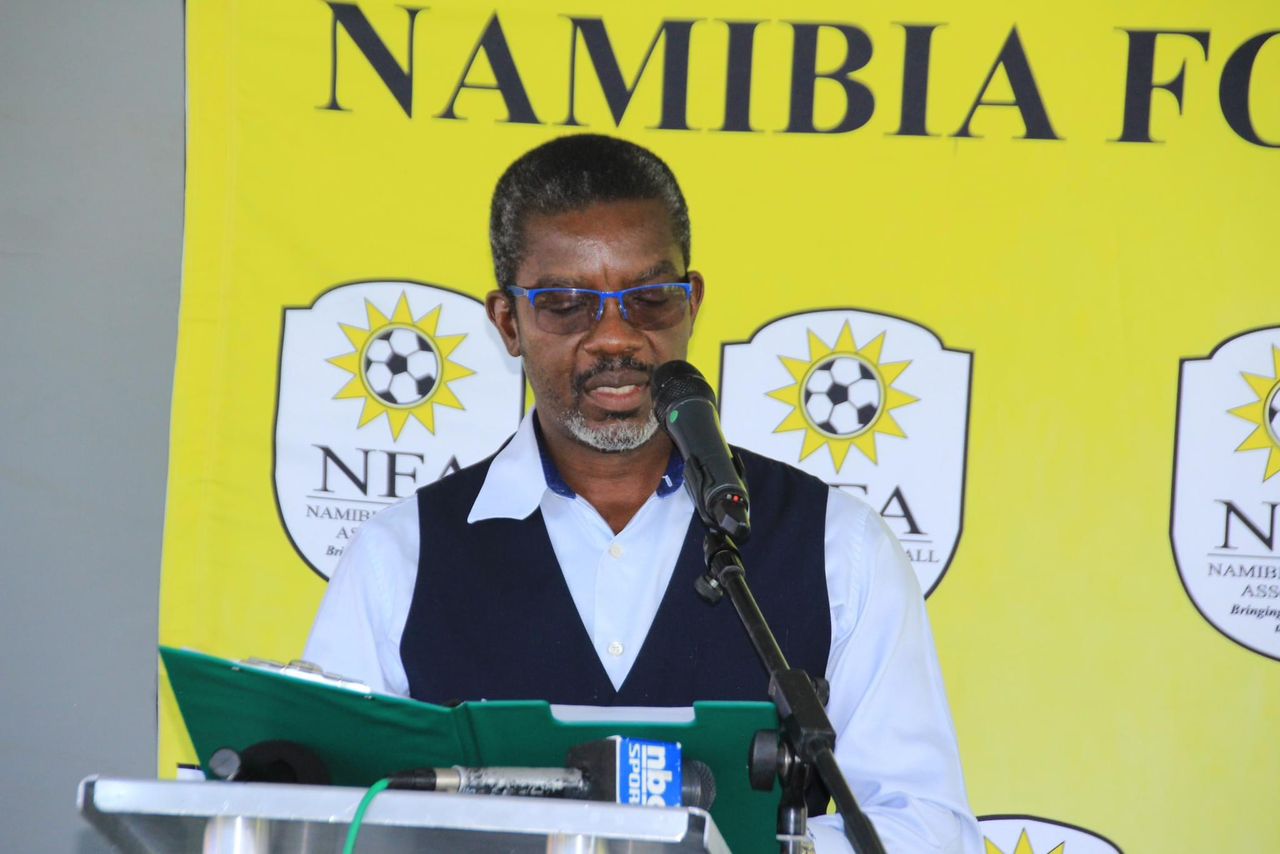In ≠Aonin culture, there is a Topnaar sub-clan whose name is linked to the sound of a whale’s tail hitting the water.
“!Gomen”.
On stage at the National Theatre of Namibia, actor Dawie Engelbrecht mimics the movement of the great beast in ‘≠Aoni //Aes’ as co-stars Hazel Hinda and Chantell /Uiras (Diolini) join in, looking out at the ocean in wonder.
The characters’ fascination is echoed by the audience gathered at the theatre last Friday.
Written and directed by Nelago Shilongoh in consultation with the ≠Aonin community, the theatre production, performed in English, Afrikaans and Khoekhoegowab, is a significant step into uncharted waters.
It is a historic record of a once oceanic culture devastated and displaced after colonial ships appear on the shore at Walvis Bay, rich ancestral lands are transformed into restricted national parks and Kuiseb River water is sold back to the impoverished ≠Aonin community, by the litre, in the present day.
But first there is the beginning. Set against a large backdrop of desert dunes along the Kuiseb River and astride the Atlantic Ocean, ‘≠Aoni //Aes’ introduces young Khoendikhoes (/Uiras) who lives a relatively content life with her ≠Aonin mother (Hinda) and father (Engelbrecht).

As they harvest the !Nara plant and celebrate its versatility as sustenance and medicine, the ≠Aonin family shares stories of the great Mother Whale as well as the traditional and fishing songs of the Topnaar people who tended to their livestock and lived in harmony with nature for thousands of years.
The rupture comes when Khoendikhoes wonders why her father doesn’t fish like his ancestors once did.
Later, after a feverish nightmare brings Khoendikhoes to tears, her parents delve into the forgotten history and trauma of the ≠Aonin people’s expulsion from places such as Walvis Bay, Sandwich Harbour and along the rich Namibian coastline.
“We talk tonight about the oceans, the river and the dunes where are our people come from,” says ≠Aonin spokesperson Joel Kooitjie.
Kooitjie is speaking during a brief opening programme that acknowledges the presence of the acting chief of the ≠Aonin traditional authority, Stoffel Anamab, as well as the attending Topnaar youth, local ≠Aonin community members and elder ≠Aonin council representatives.
“You are the witnesses tonight,” Kooitjie says. “You are not supporters. You are our witnesses of what happened during that time.”
On stage, Topnaar history springs to life as an intense and captivating Engelbrecht, in perhaps the theatre performance of the year, re-enacts an early contact, bow and arrow, sticks and stones battle between the Topnaar and colonial traders who came with weapons, flouting the established rules of the day.
Foreign traders who came for meat and fresh water in exchange for beads, weapons, cotton and other things, were only allowed to trade at the shore and make no contact with Topnaar women or children. On the day of that battle by the sea, the Topnaar managed to scare them away but they kept returning.

Ships from Europe, America and around the world would arrive, sometimes six at a time, and things began to change.
“All of a sudden they saw us as ‘strandlopers’. A people at the tip of the sea to be exploited but that’s not who we were,” says Khoendikhoes’ father, recalling the oral history passed down by his forefathers.
At times humorous but also harrowingly traversing the trauma of the German colonial era and Cape Colony annexation of Walvis Bay, ‘≠Aoni //Aes’ was bolstered by deep research and excellent writing, functional and minimalist staging, quick outfit changes that spawned amusing colonial caricatures highlighting the absurdity of their decrees and displacements as well as their ironic offerings of dubious “opportunities”.
The production also featured moving traditional and original music by Osmond Owoseb, supported by Diolini, costumes by Hafeni Frans, set landscapes by Saimi Iita and movement choreography by Haymich Olivier.
But that is to say nothing of Hinda, Engelbrecht and /Uiras, who infuse incredible comic timing, mighty monologues and paternal intensity as well as profound vulnerability and vocal prowess into an outstanding piece of art as a means for advocacy.
“This production emerged from a proposal by the University of Namibia in collaboration with professor Alex Kanyimba, the country director of One Ocean Hub Namibia since 2019,” says Shilongoh.
“One Ocean Hub is an international programme focused on oceanic governance worldwide. In Namibia, the University of Namibia aimed to address issues affecting the ≠Aonin as a marginalised coastal community,” Shilongoh says.
“The proposal aligned with the theatre’s goal to highlight marginalised stories and use storytelling for social change. The production has been presented to key stakeholders to empathise on a human level, and produce tangible results.”

While the production could benefit from a clearer declaration of present-day issues and a definite call to action – a petition, a protest or the practical ways in which one can lobby for and assist the ≠Aonin community – ‘≠Aoni //Aes’ stands tall as an affecting and illuminating introduction.
Through its highly empathetic treatment of Topnaar history, ‘≠Aoni //Aes’ does the vital work of expanding ideas of local culture and returning myth, song, dance, ways of being and tradition to both the ≠Aonin and the wider Namibian nation while igniting investigation into a way forward characterised by Topnaar representation and consultation.
“There is a lot of talk about how there are policies in place to ensure that we, the ≠Aonin people, benefit from this land, from all these businesses that are set up and established at the coast,” says the ≠Aonin father of the play, presumably referring to the Topnaar people’s contemporary concessions regarding tourism, hunting and fishing as well as their harvesting, processing and selling of the !Nara plant.
“These people, these policymakers, must come and visit us and see for themselves how these policies are not reflecting the reality of our conditions,” he says. “It hurts to talk about these things but let me not go on …”
As the ≠Aonin father struggles to find the words on stage, Topnaar advocacy work goes on.
“Community work is complex, as it must focus on the community’s needs. Beyond the play, we’re currently developing a policy recommendation document for key stakeholders to elevate the conversation nationally,” says Shilongoh.
“We hope that the project influences government leaders to expedite policy reforms for the ≠Aonin.”
– martha@namibian.com.na; Martha Mukaiwa on Twitter and Instagram; marthamukaiwa.com
Stay informed with The Namibian – your source for credible journalism. Get in-depth reporting and opinions for
only N$85 a month. Invest in journalism, invest in democracy –
Subscribe Now!






